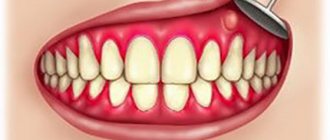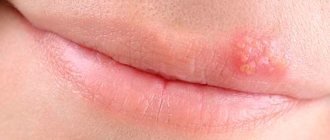There are situations when a person smells of acetone, and this causes special troubles both for himself and for the people around him. Therefore, it is necessary to understand the reasons for the appearance of such a smell, get examined at a medical institution and select a suitable treatment and prevention regimen.
Many people develop bad breath due to lack of basic hygiene. Multiplying pathogenic bacteria lead to the appearance of many symptoms. Often an unpleasant odor appears due to problems with a person’s internal organs. The presence of diseases associated with disruption of the stomach causes a sour smell, intestinal diseases - the smell of rot.
However, the smell of acetone that appears forces you to seriously think about your health and immediately visit a doctor.
Reasons - what are they?
The human body may smell like acetone in some situations. The smell can be due to sweating, from the mouth, from urine, and this indicates that it arose due to certain diseases. What diseases could these be:
- Diabetes mellitus – hypoglycemic coma is accompanied by increased formation of ketone bodies.
- Kidney diseases - dystrophy and failure, which are accompanied by swelling, painful and poor urination, pain in the lumbar region.
- Thyrotoxicosis – increased production of thyroid hormones leads to excess volume of ketone bodies. The key symptom of such a serious disease of the endocrine system is increased irritability, which borders on aggressiveness, hyperhidrosis, and weakness.
- Diphtheria is a disease that causes dehydration of the body.
- Hormonal imbalance – difficulties with the endocrine system.
- Tuberculosis and more.
It is normal for humans to sweat. Sweat itself normally does not have any aroma, since it is ordinary water with certain impurities. But the appearance of aroma is provoked by microorganisms. For them, a warm and sweaty body is an excellent place for rapid development.
If the patient already has certain changes in well-being, then this or that odor will be added to the unpleasant aroma of microbes. When the body smells of acetone, this indicates that the body is not able to efficiently break down the food it absorbs, a disruption in the absorption of sugar occurs, which is why the cells experience energy hunger and the separation of fats and the formation of ketone bodies takes place, that is, the appearance of acetone.
Diabetes, malfunction of the kidneys and thyroid gland cause odor
Most often, the number of ketone bodies increases in the human body if he has diabetes. With this disease, the human body lacks a hormone such as insulin. This thyroid hormone is involved in the process of converting sugar into glucose and helps the latter be absorbed. Glucose, in turn, is an energy source for the entire body. With a lack of insulin, glucose cannot be absorbed by tissues, that is, proteins and fats are used to produce energy. As a result of the breakdown of fats, ketone bodies appear in large quantities, which are toxic to the body and cause the smell of acetone.
In type 1 diabetes, the smell of acetone indicates the approach of a diabetic coma and requires an immediate dose of insulin, otherwise a diabetic coma may occur. The patient's heart rate increases, pupils constrict, and pain appears in the abdominal area. Therefore, if a smell appears and the above-mentioned symptoms of illness are present, you should immediately contact an endocrinologist for advice, a thorough examination and treatment.
The smell of acetone is characteristic of liver and kidney dysfunction. A change in the normal functioning of the kidneys leads to kidney dystrophy and nephrosis. As a result, the metabolic process is disrupted, which ultimately leads to an increased concentration of ketones and the appearance of an unpleasant acetone odor in the blood and urine.
Pathological factors
In most cases, the ammonia smell of sweat occurs after exhausting physical activity. But when a person’s lifestyle is moderate, he performs hygiene procedures every day, and an unpleasant odor follows him everywhere, then this may be caused by the presence of certain diseases in the body.
The most common pathological causes of unpleasant ammonia sweating are presented in the table.
| Disease | Causes of unpleasant odor |
| Diabetes | An increased level of glucose in the blood disrupts the functioning of the glands, which, in addition to weight gain and drying out of the oral mucosa, provokes increased sweating. An ammonia smell indicates excess sugar. To eliminate the problem, you need to control your sugar levels and follow a diet. |
| Kidney and liver diseases | Amino acids are broken down in the liver, and urea and ammonia are excreted by the kidneys. Ammonia odor from human skin may be caused by kidney or liver failure |
| Hormonal imbalance | Due to improper functioning of the thyroid gland, the body suffers from a lack or excess of iodine, which can cause a pungent odor |
| Lack of vitamins | Ammonia aroma occurs in people whose bodies lack beneficial microelements, in particular vitamins B and D |
| Respiratory system diseases | When a person has a pungent odor and at the same time there is general weakness, fatigue and cough, then together these symptoms indicate the development of chronic bronchitis or tuberculosis |
| Nervous system disorders | The smell of sweat changes with vegetative-vascular dystonia, neuroses, sleep disturbances, and frequent stressful situations |
| Mastopathy | Pathological formations in the mammary gland provoke the smell of ammonia |
If your sweat smells like ammonia after exercise, you can eliminate the causes of such manifestations yourself. When a person is not exposed to physical activity, but the stench is constantly haunting, then this is an alarming signal that one should seek help from specialists.
Good to know! In people with a genetic predisposition, sweat may have a specific odor reminiscent of ammonia, and this condition is considered normal.
If it smells like acetone, a medical examination is necessary.
When visiting a medical facility, you will need to undergo some tests that will help determine the true cause of the acetone smell - a biochemical blood test and a urine test.
As a result of blood biochemistry, special attention is paid to such indicators of the functioning of internal organs as:
- total protein;
- glucose level;
- indicators of amylase, lipase, urea;
- cholesterol, creatinine, ALT and AST values.
An ultrasound examination of the abdominal cavity is prescribed, where possible abnormalities in the development of organs can be visually observed.
After a thorough examination, the doctor will prescribe the necessary treatment to get rid of the smell of acetone, you must strictly follow his instructions.
If metabolic processes in the body are disrupted, it is necessary to significantly increase the amount of fluid consumed to remove fat breakdown products - ketone bodies - from the body. Mineral waters, juices, tea, cranberry or lingonberry juice help with this. Increasing fluid intake is effective during periods of fasting or infectious diseases, since this dehydrates the body.
In children, getting rid of the smell of acetone involves cleansing the intestines of possible parasites and maintaining a balanced diet.
If you have diabetes, you cannot completely get rid of the acetate smell.
Timely identification of symptoms of the onset of the disease will help to begin treatment in a timely manner and soon establish the normal functioning of all organs of the human body.
A woman's sweat smells like acetone - why?
Only a qualitative diagnosis of a woman can determine why her sweat smells like acetone. Often, the occurrence of such a symptom indicates the formation of a disorder that is associated with metabolic pathology. This releases a large volume of ketone bodies, excreted in urine and sweat, creating the smell of acetone.
In order to understand why women smell of acetone when sweating, we need to take a closer look at the most common causes.
Diabetes
Diabetes can be of two types:
- The first type - occurs in early childhood and is determined by underdevelopment of the pancreas or its insulin-producing Langerhans cells, which leads to insufficient production of insulin.
- The second type - against the background of a completely healthy and normally functioning gland, cell resistance to insulin occurs at its normal volume.
In these two options, the cause of the acetone aroma during sweating is considered to be insufficient supply of insulin to the tissues. This hormone is actively involved in the absorption of glucose. If the supply of glucose is insufficient, the liver and other organs, to compensate for energy costs, begin to break down their proteins and utilize glucose using ketone compounds.
Fungus
If the sweat in the groin or legs area smells of acetone, this may be a symptom of a fungal infection. The female genital organs are most susceptible to fungus.
If you feel a similar odor in the perineal area, you should urgently contact a specialist.
Currently reading: How to quickly remove odor from sneakers at home in just one night
A symptom of foot fungus is the strong smell of acetone from your socks. A similar aroma can occur even when wearing high-quality and well-ventilated shoes.
The appearance of a special aroma is associated with the waste products of certain fungi of the candida category. When they absorb the epithelium and sweat secretions, they release a mass of nitrogen and other organic components, which, when interacting, produce a similar odor of acetone or ammonia.
Medications
The use of medications can significantly affect body aroma, which is determined by changes in the activity of internal organs. The aroma of acetone from the armpits occurs when using the following medications:
- Antibacterial agents (penicillin).
- Anti-tuberculosis drugs.
- Non-steroidal anti-inflammatory drugs.
- Antifungal drugs.
- Antidepressants.
- Antitumor chemotherapy.
The above medications have increased hepatotoxicity, which leads to a decrease in liver activity, accumulation of toxic substances, nitrogenous compounds, and ketone bodies in the blood. This helps create the acetone smell.
Uncontrolled use of insulin or replacement medications for diabetes mellitus can lead to the appearance of an acetone odor from the patient’s body, mouth and feces. In this case, urgent hospitalization and regular monitoring of blood sugar are required.
Other diseases
This section may include acute inflammation of the liver and kidneys. They take part in detoxification of the body, neutralization of dangerous organic compounds, as well as their elimination with urine or bile. Pathologies in the activity of these organs lead to the accumulation of pathogenic components in the blood and their subsequent elimination through sweat with a specific aroma.
What to do if you smell acetone
Ketone bodies in urine can accumulate gradually, poisoning the body. At high concentrations, ketoacidosis may develop. If treatment efforts are not made in time, this condition can lead to diabetic coma and death of the patient.
To independently check the concentration of ketones in the body, you need to undergo a urine test for the presence of acetone. At home, you can use a solution of sodium nitroprusside 5% ammonia solution. If there is acetone in the urine, the liquid will turn bright red.
Also, to measure the level of acetone in urine, special preparations are used, which can be purchased at the pharmacy. Among them are Ketur-Test, Ketostix, Acetontest.
Medical recommendations for eliminating ammonia odor
What to do if your sweat stinks of ammonia, what does it mean and how dangerous is it? For people with excessive sweating, doctors advise the following to eliminate the ammonia odor:
- take certain medications, the action of which is aimed at eliminating the cause of the stench;
- The smell of ammonia sweat in women often occurs due to reproductive disorders. When an unpleasant odor periodically appears and disappears, such phenomena may be one of the symptoms of menopause, but if the stench is constantly present, you should consult a doctor;
- diabetics need to constantly check their sugar levels, since people with exceeded glucose levels smell ammonia on their body;
- eating foods enriched with vitamins will help eliminate the smell of ammonia from the body, the causes of which may be a lack of vitamins belonging to groups B and D;
- Patients with tuberculosis, people suffering from liver or kidney failure will not be able to get rid of such an unpleasant aroma on their own. In such cases, only inpatient treatment will provide the desired effect;
- If after training there is a strong smell of ammonia from sweat, the reasons for this may be caused by the use of various drugs and stimulating protein supplements before training. To get rid of the stench, you need to reduce the dosage of proteins and drink more water without carbon or natural juices.
Doctors advise people prone to neurosis to take sedatives, and sleeping pills will help with disturbed sleep. But you cannot choose any of the medications yourself, so as not to cause even greater complications. Any medications can be taken only as prescribed by a doctor.
Causes of acetone odor from a child’s mouth
This article talks about typical ways to solve your issues, but each case is unique! If you want to find out from me how to solve your particular problem, ask your question. It's fast and free
!
The smell of acetone can appear in the mouth of any child, and from a young age (more details in the article:). This scent may resemble a solvent. Its appearance should greatly alert parents, especially if there is an increase in body temperature.
If the mouth of a child of any age stinks of acetone, this means that the smell appeared as a result of acetone syndrome. This is a rather dangerous condition, so it must be eliminated urgently and call an ambulance. Before her arrival, the child is given boiled water. A very small child can be fed a little at a time using a teaspoon.
A faint chemical odor may be present in a child’s mouth as a sign of certain diseases. We are talking about the following ailments: diabetes mellitus, helminthiasis, dysbacteriosis, problems with the kidneys or pancreas.
Acetonomy syndrome
There are two types of acetonomy syndrome: primary or secondary. Primary vomiting, as a rule, occurs in children 3-5 years old. This form of acetonomy syndrome appears in children who are too emotionally sensitive and prone to neuroses. Often such children begin to speak early and, in general, quickly learn everything, grasping everything “on the fly.” Excess ketone bodies, and as a result, acetone syndrome, can appear even from great joy in such children.
Secondary acetonomy syndrome appears as a result of diseases: acute respiratory infections, pneumonia, diabetes and the like. A child diagnosed with acetone syndrome may experience acetone crises from time to time - this is a life-threatening condition for the baby that is provoked by nervous excitement or severe stress.
Vinegar smell and vomit
The occasional smell of vinegar from a child's mouth is quite normal in cases of hunger. To urgently get rid of the vinegar spirit, it is recommended to review the child’s diet and adjust his diet.
When the smell of vinegar from the mouth appears along with vomiting, you must urgently call an ambulance - this, in addition to acetone syndrome, can be a symptom of acute poisoning. With a constant smell of vinegar, problems with the pancreas are possible, or intestinal disorders are present.
Smell of acetone after drinking alcohol
The smell of acetone from the mouth after drinking alcohol is a common occurrence, which is caused by the breakdown of alcohol. This is what causes such an unpleasant smell. This smell is especially noticeable in the morning, immediately after a person wakes up - and it is quite difficult to eliminate such an odor.
Note! If a person did not drink alcohol the day before, but the smell of acetone still appears, this indicates significant problems occurring in the body.
With the intensive breakdown of fats and other food residues in the body, acetone is formed, which quickly penetrates into the bloodstream and is eliminated over time with the help of the lungs, kidneys and liver. If there is a malfunction in the functionality of the body or one of these organs, then this will definitely “result” in an unpleasant aroma from the oral cavity. For what reason does this happen? The smell of acetone occurs due to an excess of this component in the body, which appears when disorders form in the body or when there is a lack of useful substances.
It should be emphasized that drinking alcohol does not have the best effect on the condition of the body and certain internal organs. For this reason, the smell of acetone after drinking alcohol is common, especially if a considerable amount has been consumed.
Important! The more alcohol you drink, the stronger and more pungent the smell will be. It will be quite difficult to get rid of it.
Since beer and other alcoholic drinks negatively affect the channels in the kidneys and liver, the smell occurs due to the fact that a large number of ketone elements are formed in these organs, which the body is unable to quickly remove. This causes a strong odor from the mouth, which signals that the body is finding it difficult to cope with such a load. Directly for this reason, acetone begins to be eliminated not only through the liver, but also through the respiratory system.
Currently reading: Why does sweat smell like onions - what does it mean, reasons and how to get rid of it
It is impossible to cope with this smell even with the use of modern fragrances or rinses, since acetone must be completely eliminated from the body - only in this case the smell will be completely eliminated.
The smell of acetone is a symptom of disease
If the body smells of acetone, this indicates that a diabetic coma is approaching, while the odor from the skin and oral cavity may be accompanied by symptoms such as:
- Dry mouth – increased fluid intake;
- Frequent bladder urge;
- Dejection, loss of strength;
- Increased mental state, inability to self-control, excitability, irritability;
- Heart problems – rapid heartbeat, rhythm disturbances;
- High sweating of the body, feeling of heat;
- Despite excellent appetite, sudden weight loss.
At the same time, to identify the full picture and make an accurate diagnosis, it is necessary:
- Conduct an analysis of the medical history;
- Perform a general examination of the body and skin;
- Take a blood and urine test;
- Determine the hormonal level of the thyroid gland in the blood;
- Consult an endocrinologist.
How to get rid of the unpleasant smell of sweat?
In order for the unpleasant odor to disappear, you need to get rid of the cause. If there is a pathology in the body, it needs to be cured. Then drug therapy is suitable.
In addition to this, there are several treatment methods to get rid of the ammonia odor:
- Taking aluminum and zinc in the form of special preparations;
- Taking vitamin D (for example, Aquadetrim);
- Drinking sage. A cup of this plant reduces the activity of the glands that secrete sweat. Do not add sugar;
- Taking decoctions with a diuretic effect (rose hips, corn silk, immortelle);
- Apply eucalyptus oil to problem areas of the skin. This method reduces sweating;
- Sage and eucalyptus oils are good to add to the bath before water procedures;
- Improve water balance, drink water more often;
- Use salt. This is an effective remedy that is added to bath water. This solution draws out the ammonia accumulated in the pores. Afterwards the skin is washed with clean water;
- For neurosis, take sedatives, and for insomnia, take sleeping pills. What kind of medicine and dosage can only be prescribed by a doctor!
Excess protein in the body can cause an unwanted odor after workouts. Before physical activity, you need to enrich your body with carbohydrates.
During training, an accelerated exchange of amino acids occurs in muscle tissue. If you do not have a good meal of carbohydrates before training, the body will begin to use its own tissues as an energy source.
Ammonia and urea are substances that remove nitrogen from the body. If the amount of ammonia in the human body exceeds the amount that the kidneys and liver can process and then remove from the body, then excess ammonia begins to be released through the skin along with sweat.
Some stimulant supplements and drugs can lead to the appearance of a corresponding aroma, as they speed up metabolic processes in the body, which can lead to dehydration. Taking medications increases energy needs and may also contain amino acids, which are, in most cases, a provoking factor for an increase in the amount of urea and foul-smelling sweat.
- Consult a doctor for advice, take a urine and stool test, donate blood for sugar, or undergo a full examination.
- Increase your intake of carbohydrate-rich foods, especially before exercise.
- Increase the volume of fluid taken. Drink more water and juice. You should not replace plain water with sweet soda, coffee or tea. This can only make things worse.
- Recalculate your protein intake. It is impossible for those who want to pump up a sculpted, beautiful body to completely give up protein supplements. In your quest to get the desired figure, you should not be too zealous and exceed the dose. If you do not follow the measure, then in addition to the ammonia smell of sweat, there is a high risk of getting protein poisoning.
An unpleasant smell is a signal for active action; the problem cannot be left for later. After all, many diseases that cause the presence of chemical impurities in the smell of sweat are quite formidable. And if you do not contact specialists in a timely manner, the consequences may be irreversible.
This is especially true for small children, because before the onset of puberty, children do not smell of sweat at all. If parents smell an unpleasant odor from their baby, they should immediately consult a doctor and undergo an examination.
In addition to the main reasons, there are also less significant factors that in some cases can still cause the acetone odor of sweat:
- Frequent consumption of fatty and fried foods;
- Passion for a diet that involves minimizing the consumption of carbohydrates;
- Hormonal changes in adolescence;
- Starvation.
An unbalanced, heavy and unhealthy diet leads to disruption of the gastrointestinal tract, as a result of which metabolism is disrupted and insulin production slows down. In the case of low-carbohydrate diets, the body simply does not have enough energy, it tries to find alternative sources and burns fat, ketone bodies are formed.
An unpleasant smell of sweat may not always be associated with diseases of the body. It is possible that you:
- Do you prefer clothing made from non-natural synthetic fabrics in everyday life?
- You don’t eat right, which means an abundance of fried, fatty, hot, spicy, smoked foods, soda, alcohol and seasonings in the form of onions and garlic in your diet;
- Do not shower as often as necessary - wash your armpits and the entire body 2 times a day with soap.
Why does a person smell like acetone?
There are situations when a person smells of acetone, and this causes special troubles both for himself and for the people around him. Therefore, it is necessary to understand the reasons for the appearance of such a smell, get examined at a medical institution and select a suitable treatment and prevention regimen.
Many people develop bad breath due to lack of basic hygiene. Pathogenic bacteria multiply leading to the appearance of many symptoms. Often an unpleasant odor appears due to problems with a person’s internal organs. The presence of diseases associated with disruption of the stomach causes a sour smell, intestinal diseases cause a rotten smell.
However, the smell of acetone makes you seriously think about your health and immediately visit a doctor.
Why is there an acetate smell?
The acetone smell indicates a high content of products in the human blood that appear as a result of the breakdown of fats - the so-called ketone bodies.
Moreover, it can come not only from the mouth; sweat and urine also become its sources. Reasons for the appearance of an unpleasant acetate odor:
- diseases of the endocrine system - namely diabetes;
- diseases of the digestive system;
- improper functioning of the liver and kidneys;
- thyroid diseases;
- various infectious diseases;
- as a result of starvation.
All these reasons can cause disturbances in the normal functioning of the body and lead to the appearance of a toxic odor.
Return to place Diabetes, malfunction of the kidneys and thyroid gland cause odor
Most often, the number of ketone bodies increases in the human body if he has diabetes. With this disease, the human body lacks a hormone such as insulin. This thyroid hormone is involved in the process of converting sugar into glucose and helps the latter be absorbed. Glucose, in turn, is an energy source for the entire body. With a lack of insulin, glucose cannot be absorbed by tissues, that is, proteins and fats are used to produce energy. As a result of the breakdown of fats, ketone bodies appear in large quantities, which are toxic to the body and cause the smell of acetone.
In type 1 diabetes, the smell of acetone indicates the approach of a diabetic coma and requires an immediate dose of insulin, otherwise a diabetic coma may occur. The patient's heart rate increases, pupils constrict, and pain appears in the abdominal area. Therefore, if a smell appears and the above-mentioned symptoms of illness are present, you should immediately contact an endocrinologist for advice, a thorough examination and treatment.
The smell of acetone is characteristic of liver and kidney dysfunction. A change in the normal functioning of the kidneys leads to kidney dystrophy and nephrosis. As a result, the metabolic process is disrupted, which ultimately leads to an increased concentration of ketones and the appearance of an unpleasant acetone odor in the blood and urine.
In this case, the patient experiences swelling of the limbs, problems with urination, pain in the lumbosacral region, and increased blood pressure. If in the morning a person begins to smell of acetone and swelling appears, then this is a reason to consult a doctor to examine the functioning of the kidneys.
In addition, the smell of acetone can bother a person if the functioning of the endocrine system is disrupted. As a result of improper functioning of the thyroid gland, a large amount of hormones is formed in the body, which, in turn, affects metabolism.
The body needs more energy, which it begins to take as a result of burning not only carbohydrates, but also fats. Ketone bodies are formed, which are the cause of the smell of acetone in humans.
This problem is also accompanied by rapid weight loss while maintaining an excellent appetite. The person becomes irritable and sleep is disturbed.
Therefore, if the smell of acetone appears, which is accompanied by the above-mentioned symptoms, it is necessary to immediately consult a doctor to examine the functioning of the kidneys and normalize metabolic processes in the body.
Return to topicNo-carbohydrate diets harm the body
The formation of a large number of ketone bodies is observed due to fasting, monotonous diets, and unbalanced nutrition. This is especially true for low-carbohydrate and no-carbohydrate diets that have become fashionable today. The process is simple: the body stops receiving the carbohydrates it needs to function, and it begins to burn fat to a greater extent, producing ketone bodies. Undoubtedly, the effect of the diet is achieved quickly, but the produced ketone bodies accumulate in large quantities in the body and poison it, as a result of which the normal functioning of the liver, kidneys, stomach and intestines is disrupted.
Various infectious diseases lead to severe dehydration of the body, for this reason metabolic processes are disrupted, which leads to an increased content of acetone.
Read also: The smell of acetone
The acetate odor can also appear in a child. This is due to the peculiarities of the functioning of the child’s body, as a result of which ketone bodies do not have time to leave quickly and on time and accumulate. This is what causes the unpleasant odor of acetone. This mainly manifests itself in adolescence and is paroxysmal in nature. Therefore, parents whose children are prone to such symptoms need to know the measures to prevent this disease. Often, a child’s tendency to increase acetone in the blood is determined at the genetic level when a pregnant woman eats a lot of protein foods, limiting the consumption of vegetables and fruits.
In children, acetate odor can occur due to stressful situations, overexcitement or overwork.
Consequently, a person smells of acetone as a result of a violation of metabolic processes in the body, in particular, improper burning of fats. If a smell appears, it is necessary to clearly determine the cause and contact a specialist for medical assistance.
Return to the solution It smells like acetone, a medical examination is required
When visiting a medical facility, you will need to undergo some tests that will help determine the true cause of the acetone smell - a biochemical blood test and a urine test.
As a result of blood biochemistry, special attention is paid to such indicators of the functioning of internal organs as:
- total protein;
- glucose level;
- indicators of amylase, lipase, urea;
- cholesterol, creatinine, ALT and AST values.
An ultrasound examination of the abdominal cavity is prescribed, where possible abnormalities in the development of organs can be visually observed.
After a thorough examination, the doctor will prescribe the necessary treatment to get rid of the smell of acetone; you must strictly follow his instructions.
If metabolic processes in the body are disrupted, it is necessary to significantly increase the amount of fluid consumed to remove fat breakdown products - ketone bodies - from the body. Mineral waters, juices, tea, cranberry or lingonberry juice help with this. Increasing fluid intake is effective during periods of fasting or infectious diseases, since this dehydrates the body.
In children, getting rid of the smell of acetone involves cleansing the intestines of possible parasites and maintaining a balanced diet.
If you have diabetes, you cannot completely get rid of the acetate smell.
Timely detection of symptoms of the onset of the disease will help to begin treatment in a timely manner and soon establish the normal functioning of all organs of the human body.
Why does sweat smell like acetone after exercise?
The structure of sweat, which is secreted by the endocrine glands, includes the following elements:
- Sodium chloride.
- Ammonia.
- Urea.
- Acids (lactic, citric, ascorbic).
- Water (90%).
A healthy person has practically no smell of sweat. If a certain disorder develops in the body, it acquires a sharp, unpleasant odor. If the sweat produced has the smell of vinegar, ammonia, acetone, or alcohol, then this may indicate the presence of a serious pathology. In this case, you need to consult a doctor.
If you are plagued by the problem of the smell of sweat after sports activities, then you need to consult a specialist to exclude the formation of serious diseases. The doctor will prescribe the required examinations followed by treatment for the disorder. To stop the occurrence of unpleasant body odor, you should adhere to certain principles:
- Exercise in clothes that are made exclusively from natural fabrics that absorb excess liquid well and do not interfere with the process of heat exchange in the body. In hot weather, you need to wear light, open shoes made of genuine leather or material.
- During the period of active physical exercise, it is necessary to control the volume of fluid and carbohydrates in the body.
- It is better to immediately change wet clothes after training to dry ones in order to stop the proliferation of pathogenic microorganisms, since a humid environment creates positive conditions for the formation of infection, including fungal infections.
- Watch your diet - sour and spicy foods cause the formation of a specific odor.
- Personal hygiene rules after playing sports. If this problem occurs, it is necessary to take a shower every day, and in hot weather, wash at least 2-3 times, especially after exercise.
- Treat problem areas of the skin with antiperspirants or deodorants. In addition, you need to use a special antimicrobial soap that stops the appearance of sweat.
- It is possible to additionally take medications that contain aluminum and zinc in their structure - these microelements destroy microorganisms that cause the unpleasant odor of acetone.
There are a large number of conditions that affect the formation of the ammonia odor in sweat. To get a more detailed diagnosis and the correct solution to this problem, you should contact a specialist who will carry out an examination and, if necessary, prescribe therapy.
The smell of sweat and illness
If the sweat has acquired an unpleasant and even fetid odor, then this is a signal that you need to see a doctor.
Healthy sweat has no odor!
If the sweat smells unpleasantly of chlorine or ammonia, then the person needs to have his kidneys or liver checked.
When sweat begins to smell like rotten apples or acetone, this is the first sign of diabetes. In this case, be sure to consult an endocrinologist.
The smell of vinegar in sweat is a signal of diseases of the upper respiratory tract and lungs; if there is a mouse smell of sweat, the problem should be looked for in skin diseases (you need to consult a dermatologist). If the sweat smells like rotten eggs, then you need to check the functioning of the gastrointestinal tract.
An increase in the volume of sweat secreted to 2 liters per hour is considered a signal of serious pathology. This indicates a severe form of diabetes mellitus or tuberculosis.
How to deal with unpleasant odor?
If an ammonia “aroma” of sweat secretion is detected, then it is imperative to consult a doctor who will find out the cause of this symptom. Only after it is clarified, treatment tactics are determined, aimed at eliminating the factor that caused the unpleasant odor. You can reduce odor yourself by maintaining personal hygiene:
- Daily shower.
- Using deodorants and antiperspirants to reduce sweating and mask unpleasant odors.
- Regular change of clothes. If stains or a sweaty “aroma” are detected, it is recommended to change and wash the linen.
- Preference for natural fabrics, since odorous substances stick to synthetics faster.
- Wearing open shoes. If you constantly wear sneakers in the heat, sweating will increase significantly, and substances from the shoe material will be absorbed into the skin of your feet. This will cause foot odor.
- Limiting spicy foods, canned food, fast food, and strong-smelling spices (onions, garlic, curry) in your diet.
- Compliance with the drinking regime (the water norm is at least 1 liter for women, 1.5–2 for men).
- Taking vitamin-mineral complexes.
- Taking a shower after exercising
- Weight loss if there are problems with this.
- Among the folk remedies, decoctions of sage, pine, baths with oak bark or eucalyptus oil are excellent for getting rid of odor. Regular treatments will relieve muscle tension and soothe the skin.
If, after applying the above measures, the ammonia “aroma” does not disappear, then it can be assumed that a serious disease has developed in the body, which requires urgent contact with a specialist.
If there is an unpleasant odor from the skin, a person finds himself in a kind of isolation, since it is extremely unpleasant for others to communicate with him. Naturally, in such cases, the main thing is to undergo a medical examination and begin a course of treatment.
- The first thing is to review your diet - diversify it or exclude foods with a strong smell from your diet. The main thing is to fill your meals with carbohydrates and balance them.
- Next, you need to adhere to the rules of hygiene - in addition to taking a shower, wipe your body with herbal decoctions - yarrow, chamomile, string, which will successfully help cope with the bad odor.
- Wear clothes only from natural fabrics, do not abuse synthetics.
- As for children, avoid harmful and unnecessary foods in the baby’s diet, which are completely devoid of nutritional value, but cause irreparable harm to the fragile body.
- Wipe contaminated areas on the fabric with salt, if natural items require more salt than in the case of synthetics;
- Rinse woolen items in water with vinegar or citric acid;
- Gasoline removes the smell of sweat from fur products;
- Of course, you can resort to dry cleaning, but this method is not affordable for everyone.
Causes of the smell of acetone from the mouth of an adult
The unpleasant odor of acetone from the mouth can be present not only in an adult, but also in a teenager and even a newborn child. It is often accompanied by a phenomenon such as belching. There are many reasons for its origin.
The most common reason for bad breath from this substance is a lack of glucose in the body. There are other factors:
- the appearance of chronic diseases;
- fasting for the purpose of losing weight;
- hyperglycemic coma.
A person who notices that an unpleasant odor of acetone or solvent is coming from his mouth should consult a doctor and prevent the development of the disease. After passing the tests, the doctor will be able to determine the reason why the smell of acetone appears from the mouth and prescribe treatment. In addition, belching with acetone can also be a concern - its causes also need to be clarified by consulting a doctor.
After alcohol
Frequent, long-term drinking of alcohol can cause bad breath, similar to acetone. The phenomenon is easily explained: during the breakdown of alcohol by the liver, the lungs release a toxic substance, which is characterized as alcoholic. This toxin has the taste and aroma of acetone, which is perceived by strangers from the drinker (we recommend reading:).
The constant smell of the chemical acetone after drinking alcohol indicates that the liver is becoming less and less resistant to alcoholic beverages - it’s time to stop drinking alcohol to prevent serious liver diseases.
As a symptom of diabetes
A person with an acetone odor from the mouth is recommended to donate blood for glucose, and therefore to determine diabetes, since one of the most common causes of stench is diabetes. Due to the fact that there is a deficiency of insulin in the body, sugar does not penetrate into the cells, resulting in diabetic ketoacidosis. The indicator at which this phenomenon develops reaches 16 mmol of glucose per liter of blood.
If there is a suspicion that it is diabetes mellitus, then the patient’s next step should be a visit to the doctor or a call to the ambulance. Diabetic ketoacidosis causes the following symptoms:
- acetone in the urine, which will be shown by its general analysis;
- the smell of acetone directly in the mouth;
- constant thirst and dry mouth;
- frequent urination;
- vomiting and nausea;
- periodic depression of consciousness, coma.
If a sudden coma occurs, you must urgently call an ambulance. If this is not done, the consequences can be very sad.
As a symptom of kidney and urinary tract disease
If your breath begins to smell of this substance, then this may also be a sign of problems with the kidneys and urinary tract - we are talking about kidney diseases such as nephrosis or kidney dystrophy. This is explained by a violation of protein metabolism in the body, which occurs due to changes in the functioning of the renal tubules.
In addition to the fact that the smell of acetone comes from the patient’s mouth, his urine also has the same odor. If such symptoms appear, immediately consult a doctor who will prescribe tests, additional examinations and appropriate treatment.
For diseases accompanied by fever
Often the smell of acetone from the mouth and belching appear along with an increase in body temperature. Most often this indicates acetonuria. Most often, the disease appears in children aged 5 to 13 years, however, sometimes adults also encounter it. Acetonuria, that is, increased acetone in the urine, must be treated urgently, because excess toxins in the body can lead to the following complications:
- heart diseases;
- brain damage;
- severe dehydration;
- gastrointestinal lesions;
- coma.
For pathologies of the thyroid gland
In both women and men, the smell of acetone from the mouth may also indicate thyroid disease. We are talking about a disease such as thyrotoxicosis. During its development, an excessive amount of thyroid hormones is released. Other common signs of the disease include excessive sweating, irritability and tachycardia.
As for the external symptoms of thyroid disease, this is noticeable dryness of hair and skin. If you do not contact an endocrinologist immediately, the patient may begin to rapidly lose weight and begin to complain about the functioning of the digestive tract.
During fasting or mono-diet
Often, girls and women, in order to look more attractive, begin to lose weight using unsparing diets. Fasting does not lead to anything good, because the body does not receive the usual energy supply from food, it begins to use up internal reserves. Such reserves can be called fats and proteins. As a result of unusual metabolism in the body, the level of toxins in the blood rises. Despite this deterioration in health, many do not understand why dieting is harmful.
The so-called “carbohydrate diets” are also considered harmful, during which a person practically stops eating carbohydrate foods - the level of toxins increases, which causes an acetone aroma.
Symptoms of diabetes
An excessive amount of ketone compounds in the body is caused by insulin deficiency, which occurs in diabetes mellitus. Insulin is produced by the endocrine gland to break down sugar. The glucose obtained by this method is better absorbed by the body.
The role of sugar is a guarantee of normal energy balance. If glucose deficiency occurs, the body begins to use fats and proteins to produce energy, the breakdown of which produces ketone components. These compounds are considered toxic, so the body tries to remove them through sweat and urine, which begin to smell like acetone.
In type 1 diabetes, sweat with the smell of acetone indicates that a diabetic coma will soon occur, which can be stopped by injecting insulin. Signs of an approaching coma:
- Frequent heart rate.
- Constriction of the pupils.
- Pain in the abdominal area.
- Unpleasant, pungent odor of acetone from the mouth.
- Excessive dryness in the mouth.
- Vomit.
- Sharp deterioration of condition.
Therapy is prescribed exclusively by an endocrinologist.
How to eliminate odor
For type 1 diabetes, the main treatment is regular insulin injections.
In addition, the disease is treated with glucose-lowering drugs. Read also: What does the smell of acetone on your breath mean?
It is not uncommon for type 2 diabetes to progress to type 1 diabetes. This happens because over time the pancreas stops producing unneeded insulin.
Insulin-dependent diabetes, in which acetone is synthesized, is incurable, but in most cases it can be prevented (just not the one that is inherited).
To do this, it is enough to adhere to a healthy lifestyle and proper diet. You should definitely say goodbye to bad habits and go in for sports.
Eliminating ammonia odor using folk remedies
Sweat with the smell of ammonia, the causes of which do not require complex therapy, can be eliminated with the help of medicinal herbs and traditional medicine recipes:
- You can reduce the intensity of sweating in the summer season, especially in extreme heat, with the help of sage. One cup of tea from this plant throughout the day will provide the body with tone and reduce the activity of the sweat glands. Tea should be consumed without sugar;
- natural vegetable oils perfectly reduce sweating in people with dry skin. The greatest effect is provided by sage or eucalyptus oil. The compositions applied to problem areas moisturize the skin well and reduce the amount of sweating. Oils can also be used during bath procedures, adding a few drops to the water;
- baths with the aroma of pine needles help get rid of the nasty ammonia smell. The flavonoids contained in pine effectively relieve tension, soothe the skin and reduce the intensity of sweating;
- Baths will help eliminate the smell of ammonia from your feet. An effective remedy is salt added to water. It attracts toxins and ammonia accumulated in the pores of the epidermis; only after a bath, your feet should be washed in clean water and wiped dry. Baths with the addition of crushed oak or sage bark will be useful for combating the ammonia stench. In addition to the therapeutic effect, such compositions saturate the skin of the feet with a pleasant herbal aroma.
There are also many other recipes and compositions, the use of which can, if not completely eliminate, then significantly reduce the smell of ammonia from sweat. Only to achieve results you need to follow the treatment regimen with a specific remedy and then you can get rid of the strong stench.
Other violations
The secondary causing conditions for the occurrence of sweat with the aroma of acetone are:
- Addiction to junk food, fatty and fried foods;
- Strong preference for a low-carbohydrate diet;
- Hunger.
Currently reading: What you need to do urgently if your feet smell unpleasant and stink
An unbalanced diet and monotonous diets lead to disruption of the digestive system, metabolic disorders and other disorders. Especially risky low-carb and no-carb diets. An unpleasant aroma of sweat is considered the first symptom of disorders in the human body, and indicates that it is time to stop abusing such dietary foods.
The mechanism for the formation of toxic components that lead to an unpleasant odor is simple:
- The body stops receiving carbohydrates, which are necessary to ensure normal functioning.
- Powerful fat burning begins with the formation of ketone bodies.
- The produced carcinogens accumulate in excess in the body, thereby poisoning the person inside.
- The activity of the liver, kidneys, pancreas, and gastrointestinal tract is disrupted.
Sweat odor due to body disorders
So, if there is an unpleasant smell of sweat, you should immediately consult a general practitioner. This must be done because the consequences of this can be quite serious.
If your sweat smells like ammonia, this indicates:
- About kidney failure, impaired urinary excretion, and cystitis;
- The fact that a person has been on a protein diet for a long period of time. To eliminate the cause, you will need to visit a gastroenterologist;
- Diabetes;
- Damage to the body by Pseudomonas aeruginosa infection;
- Diphtheria;
- Metabolic disorders in the body;
- Tuberculosis;
- Damage to the bladder by a benign or malignant neoplasm.
The smell of acetone indicates health problems. Therefore, a person should not ignore the symptoms. Sweat that smells like acetone indicates various ailments, including diabetes, ketoacidosis and other diseases. The patient should consult a specialist, find out the causes of the condition and undergo a course of treatment.
Smells
If your sweat smells like ammonia, then it should definitely attract attention. However, it should be noted that such a phenomenon does not always indicate the presence of pathology. After all, the smell of human sweat can change throughout life. The reasons for such changes can be completely different factors (for example, a certain lifestyle of a person, his diet, abuse of bad habits, and so on).
Why does sweat smell like ammonia? Only experienced specialists can answer this question. By the way, they claim that such discharge often has other odors, including fishy, sour, putrid, and even honey.
How to temporarily remove the acetone smell?
This odor cannot be removed by brushing your teeth.
- To give the mouth a fresher smell, frequent rinsing will help, which can be done with decoctions of mint, oak bark, chamomile, and sage. To do this, the dry collection is poured with boiling water and allowed to brew.
- In addition to herbal decoctions, you can use hydrogen peroxide to rinse your mouth. To do this, it is recommended to mix it with water one to one.
- The oil, which must be kept in the mouth for 10 minutes, will help get rid of the terrible smell of acetone for a while. After this, you need to spit it out and rinse your mouth with water.
Based on our anatomy and, of course, physiology, we not only need fluid to maintain the normal functioning of a healthy body, but we also struggle with how and in what quantity this fluid is excreted. In this case we are talking about sweat. The smell of sweat causes a lot of trouble for many people. But not everyone knows that only unhealthy “sick” sweat smells bad. The discharge of a healthy person does not have a bad or unpleasant odor. What to do if your sweat starts to smell like acetone?
Diagnosis and treatment of acetone odor in humans
It is possible to identify the reasons for the occurrence of the smell of acetone by going to the clinic, where blood and urine tests will be taken. When deciphering blood, special emphasis is placed on:
- Total protein concentrations;
- Blood sugar;
- Amylase, lipase and urea levels;
- Inclusion of cholesterol, creatine, ALT, AST.
Additionally, ultrasound diagnostics may be prescribed to examine the peritoneum. The instrumental method makes it possible to track anomalies in the formation and activity of organs.
Based on the results of the diagnosis, the specialist determines a therapy that makes it possible to remove the smell of acetone and the root causes that provoked it. Human therapy is based on eliminating the excessive formation of ketone bodies. For this purpose, in case of impaired metabolism, infections, fasting:
- Drinking plenty of fluids (mineral water, tea, freshly squeezed juices, fruit drinks) is prescribed;
- The intestinal tract is cleansed of parasites.
The smell of acetone in type 1 diabetes is removed:
- Constant injection of insulin saturates the cells with the required carbohydrates;
- Taking a course of therapy with drugs that lower sugar;
- Dietary treatment.
For preventive purposes it is recommended:
- Adjust your diet;
- Constantly perform light physical activity;
- Give up bad habits.
However, it is impossible to completely get rid of urine and sweat smelling of acetone with diabetes.
The smell of acetone coming from the human body is a signal to check blood sugar
Swedish scientists said that if a person has an unpleasant, pungent odor from the skin, this is a sign of disorders in the body.
Sweat mixed with acetone may indicate problems with the kidneys, metabolism, complications of diabetes, or the presence of an infectious agent in the body.
That is why it is recommended to be examined to find out the cause of the acetate odor and undergo a course of treatment so as not to aggravate the disease.
An uncharacteristic odor of sweat may indicate a disease.
Causes
Mats Olsson, director of research at the Karolinska Institute in Solna, suggested that humans have a natural ability to detect diseases by the specific smell of sweat. The acetone smell of sweat may indicate problems such as:
- endocrine dysfunctions caused by diabetes;
- diseases of the digestive system;
- liver and kidney dysfunction;
- pathologies of the thyroid gland with hormonal dysfunction;
- infection of the body with microbes, viruses, bacteria;
- starvation diet.
Any of the above reasons leads to an imbalance in the body, which causes general dysfunction and the appearance of a pungent odor.
Diabetes mellitus is the most common cause of sweat that smells like acetone. This is caused by insulin deficiency. Therefore, under-splitting of glucose occurs.
Its excess leads to changes in blood composition and metabolic disorders, which results in the formation of an excess of ketone bodies.
The body begins to excrete a large amount of these substances in the urine and sweat, so the person begins to exude the foul odor of acetone from the body. This condition is a harbinger of diabetic coma. This is why you should definitely consult a doctor. Sweat that smells like acetone may be caused by kidney problems. In this case, the disease is accompanied by symptoms such as:
- swelling;
- urinary disturbance;
- pain in the lumbar region;
- smell of acetone from the mouth;
- blood pressure increases.
If there are problems with the thyroid gland, sweat with the smell of acetone occurs. When the body needs more energy, along with carbohydrates, intensive breakdown of fats begins.
The products of this reaction are ketone substances or acetone, the excess of which is excreted in sweat. The process is aggravated by increased sweating, which is typical for thyroid pathologies.
Additionally, characteristic symptoms such as:
With pathologies of the thyroid gland, a large amount of sweat with the smell of acetone is released.
- sharp and rapid loss of body weight while maintaining excellent appetite;
- irritability;
- insomnia.
All kinds of infectious diseases can cause severe dehydration. Against this background, a disruption of natural processes such as metabolism in the body occurs.
As a result, some substances are broken down better than others, an imbalance occurs and the formation of toxic breakdown products - ketone substances, that is, acetone, which gives sweat a sharp, characteristic odor.
Symptoms of diabetes
An excess of ketone compounds in the body is caused by insulin deficiency, which occurs in diabetes mellitus. Insulin is produced by the endocrine gland to break down sugar. The glucose obtained in this way is better absorbed by the body.
The role of glucose is to ensure normal energy balance. If there is a lack of glucose, the body begins to use fats and proteins to produce energy, the breakdown of which produces ketone substances. These compounds are toxic, so the body tries to remove them through sweat and urine, which smell like acetone.
In type I diabetes mellitus, acetone sweat indicates the imminent onset of a diabetic coma, which can be prevented by an insulin injection. Symptoms of an approaching coma:
If you feel like your sweat smells like acetone, this is a sign of diabetes.
- cardiopalmus;
- constriction of the pupils;
- stomach ache;
- unpleasant pungent odor of acetone from the mouth;
- severe dry mouth;
- vomit;
- sharp deterioration in condition.
Treatment is prescribed by an endocrinologist.
Other violations
Secondary provoking factors for the appearance of sweat with the smell of acetone are:
- addiction to junk food, in particular fatty and fried foods;
- excessive passion for low-carbohydrate diets;
- starvation.
Unbalanced nutrition and monotonous diets lead to malfunctions of the gastrointestinal tract, disruption of material metabolism and other pathologies. Low-carbohydrate and no-carbohydrate diets are especially dangerous. The unpleasant smell of sweat is the first sign of disturbances in the body, and signals the cessation of abuse of today's fashionable diet trends.
The mechanism of formation of toxic substances leading to the appearance of an unpleasant odor emitted by the skin is simple:
- the body ceases to receive the carbohydrates required to ensure normal activity;
- intensive fat burning begins with the formation of ketone bodies;
- produced carcinogens accumulate in excess in the body, thereby poisoning a person from the inside;
- dysfunction of the liver, kidneys, pancreas, stomach and intestines occurs.
The smell of acetone in children appears due to the characteristics of a young body.
In a child, the acetate odor occurs against the background of the functional characteristics of the young body. Due to minor disruptions, the formed ketone breakdown products do not have time to be eliminated in a timely manner, which leads to their accumulation and the appearance of sweat with the smell of acetone. This situation is typical for adolescence, when hormonal changes occur in the body.
The problem is paroxysmal in nature.
In most cases, increased sweating and the periodic appearance of an acetate odor are associated with a genetic predisposition or characteristics of intrauterine development.
In the second case, the reason lies in the unbalanced menu of a pregnant woman, who instead of a healthy balanced diet with sufficient protein content and a lack of fiber in vegetables, fruits, and bread.
Often, the acetate odor of sweat occurs in children and adults as a result of stress, severe emotional arousal or physical exhaustion.
Diagnosis and treatment of acetone odor in humans
You can find out the cause of the acetate odor of sweat by going to the hospital, where blood tests (general, biochemistry) and urine tests will be prescribed. When deciphering a biochemical human blood test, special attention is paid to:
- total protein concentration;
- glucose content;
- amylase, lipase, urea levels;
- content of cholesterol, creatinine, ALT, AST.
As additional studies, ultrasound diagnostics is used to examine the condition of the abdominal cavity. The instrumental method allows you to track abnormalities in the development and functioning of organs.
Based on the diagnostic results, the doctor prescribes treatment to eliminate the smell of acetone during sweating and the root cause that caused it. Human treatment is based on the removal of excess ketone bodies formed. To do this, in case of impaired metabolism, infectious diseases, fasting:
- drinking plenty of mineral water, tea, freshly squeezed juices, cranberry or lingonberry juice is prescribed;
- The intestines are cleansed of existing parasites.
The acetate odor in type I diabetes is eliminated:
The diagnosis of diabetes can be definitively confirmed only by test results.
- regular administration of insulin, which saturates cells with essential carbohydrates, inhibiting the secretion of ketones;
- undergoing a course of treatment with glucose-lowering drugs;
- diet therapy.
To prevent ketone intoxication of the body in diabetes mellitus, it is recommended:
- improve nutrition;
- Do light exercise regularly;
- to refuse from bad habits.
But it is impossible to completely get rid of the presence of urine and sweat, which smell of acetone, if you have diabetes.
Home remedies
To increase the effectiveness of treatment for unpleasant sweat odor, the following tips that you can apply yourself will help:
- wear clothes made from natural materials;
- give up fried, fatty, hot, spicy, smoked foods, carbonated water, alcoholic drinks, seasonings with onions and garlic;
- take a shower twice a day, thoroughly washing the armpits with antibacterial soap;
- avoid stress and overwork;
- Lose weight if you have excess weight.
- use deodorants based on zinc and aluminum, which prevent the proliferation of bacterial microflora.
Source: https://ogidroze.ru/smell-and-stains/pot-paxnet-acetonom.html
Home remedies
To increase the effectiveness of therapy against the smell of sweat, the following recommendations can be used independently:
- Wear clothes made from natural fabrics.
- Avoid eating unhealthy foods and drinks.
- Take a shower 2 times a day, rinsing your armpits well with antibacterial agents.
- Avoid stressful conditions and overexertion.
- Reduce body weight if there is excess weight.
- Use deodorants based on zinc and aluminum, as they stop the spread of bacterial flora.
By following these simple tips, you can protect yourself from such an unpleasant symptom as the acetate odor of sweat.
Reviews
Dear readers, your opinion is very important to us - therefore, we will be glad to hear your feedback about the smell of sweat with acetone in the comments, this will also be useful to other users of the site.
Alina:
I have diabetes and I know firsthand what the smell of acetone is like on the body. There is no way to fix this, so you just have to follow the doctors’ recommendations and mask this smell. I constantly take a shower, use anti-sweat products, turn to traditional medicine and the smell of sweat is not so noticeable.
Egor:
After physical activity, my sweat smells like some kind of ammonia or acetone, generally unpleasant. I went to the doctors, but according to the examination everything was fine. I still don’t know what the reasons are for this. You have to constantly wash and use deodorant.
Diagnostics
If your sweat smells like acetone, then it is important to carry out timely diagnosis of possible pathologies that are directly related to the stench. To do this, the doctor prescribes:
- analyzes and studies for acetone content;
- blood sugar test;
- urine analysis;
- bacteriological culture;
- CT scan;
- endoscopy.
Thanks to the results obtained, it is possible to determine which pathology caused the body to smell of acetone. After this, competent therapy will be prescribed. By choosing the right treatment, it is possible to prevent or facilitate a quick exit from a coma.










